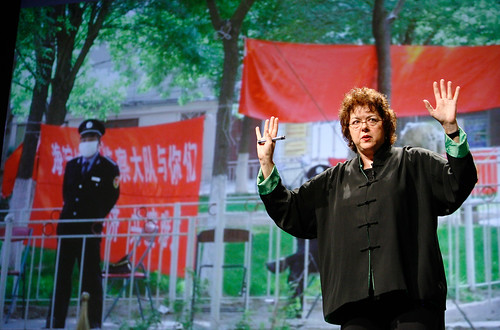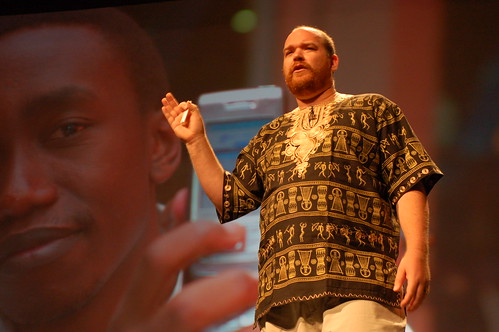PopTech & The City Resilient
 Alphachimp
Alphachimp  Friday, June 28, 2013 at 4:51PM
Friday, June 28, 2013 at 4:51PM Amid this volatility, cities serve as both the epicenters of vulnerability, and the crucibles of resilience.
We are a visual learning company that supports business innovation, strategic planning, and collaborative design—
both onsite and online.
learn more | contact us
![]()
![]()
![]()
![]()
![]()
![]()
Sign up! Become a part of our community of friends.
 Alphachimp
Alphachimp  Friday, June 28, 2013 at 4:51PM
Friday, June 28, 2013 at 4:51PM Amid this volatility, cities serve as both the epicenters of vulnerability, and the crucibles of resilience.
 Alphachimp
Alphachimp  Friday, May 14, 2010 at 12:02PM
Friday, May 14, 2010 at 12:02PM
Updated on Wednesday, January 12, 2011 at 8:25PM by
 Alphachimp
Alphachimp
Updated on Monday, August 8, 2011 at 12:42PM by
 Alphachimp
Alphachimp
Social Mapping for Social Change from Alphachimp Studio Inc. on Vimeo.
This week at at the Graham Foundation in Chicago, PopTech brought together three speakers (and a smart audience in this city of news aggregators and social good organizations) for a special salon event on the current and future impact of social mapping tools.
 Alphachimp
Alphachimp  Thursday, May 6, 2010 at 4:32PM
Thursday, May 6, 2010 at 4:32PM  "Designer vs. Dinosaur" by Lillian (6) and Peter (40)
"Designer vs. Dinosaur" by Lillian (6) and Peter (40)
Robert "Fabi G" Fabricant is inspiring jealousy (in me) by being in East Africa, blogging, and hobnobbing with the globally challenged superheroes and villains at the World Economic Forum.
His observations in his Fast Company post examine the long shadow cast by the rise of Design Thinking.
Specifically, Fabricant calls out the dirty little secret that designers--while clever, innovative and unafraid of funky footwear--don't actually know how to get stuff done within complex systems.
 Alphachimp
Alphachimp  Tuesday, April 28, 2009 at 11:37AM
Tuesday, April 28, 2009 at 11:37AM  October 25, 2008: Laurie Garrett shares her proposal for a change in global health policy, and accompanying shifts in foreign policy and perception by countries like the US. photography by kris krüg Renowned global health expert Laurie Garrett gave a powerful and frightening talk at PopTech 2008 on how countries deal - both effectively and ineffectively - with pandemics. Examining China's response to SARS, she asked: what if this happened here? How would we respond? Her presentation is essential viewing right now:
October 25, 2008: Laurie Garrett shares her proposal for a change in global health policy, and accompanying shifts in foreign policy and perception by countries like the US. photography by kris krüg Renowned global health expert Laurie Garrett gave a powerful and frightening talk at PopTech 2008 on how countries deal - both effectively and ineffectively - with pandemics. Examining China's response to SARS, she asked: what if this happened here? How would we respond? Her presentation is essential viewing right now:
http://www.poptech.org/popcasts/popcasts.aspx?lang=&viewcastid=227
Yesterday, just in time for the World Health Organization to raise the threat level from a 3 to a 4 (on a 6-point scale), Laurie gave a wide-ranging press teleconference on Swine Flu. We've summarized some of her high-level questions and answers on our blog:
http://www.poptech.org/blog/index.php/archives/3356

Finally, 2008 PopTech Fellow Erik Hersman (http://twitter.com/whiteafrican) wrote a terrific piece on information patterns that emerge during an emergency on social networking platforms (like Twitter), and how these can be aggregated and turned into real-time maps that shape a strategy for intervention:
http://blog.ushahidi.com/index.php/2009/04/27/information-patterns-and-thoughts-on-swine-flu/
The above represent just the kind of clear thinking we may yet need in this circumstance. Have a look, and if you feel moved to do so, please help us share these insights by forwarding, blogging, and tweeting the above to friends and colleagues.
 It’s been three years since our last pandemic readiness workbook update: Preparing for Pandemic – Family and Neighborhood Readiness Workbook. The Avian Flu has continued to smolder in Asia, Africa and parts of the Middle East only a few new human cases emerged. However, other strains of influenza have continued to mutate, including the new Swine Flu which is in the news today.
It’s been three years since our last pandemic readiness workbook update: Preparing for Pandemic – Family and Neighborhood Readiness Workbook. The Avian Flu has continued to smolder in Asia, Africa and parts of the Middle East only a few new human cases emerged. However, other strains of influenza have continued to mutate, including the new Swine Flu which is in the news today.
You can download a complimentary copy of our updated readiness workbook from our website: http://www.sterlinginsights.com/articles/pandemic_flu_20090501_dnld.pdf
Or you can order a paperback version: http://www.lulu.com/content/263485
 Alphachimp
Alphachimp
From Joe Sterling:
http://www.wpxi.com/video/19313969/index.html
Here’s a great flu explanation on video by Henry Niman, Ph.D. founder of Recombinomics, a research firm focused on genetic evolution of infectious diseases. http://www.recombinomics.com/whats_new.html
I’ve been tracking Niman since 2005 and he is always a bit ahead of everyone else and tells it like it is.
Joe
 Alphachimp
Alphachimp  Wednesday, March 12, 2008 at 9:48AM
Wednesday, March 12, 2008 at 9:48AM 
Unable to raise enough money on their own, the brothers are joined by students, politicians, and a rock band who launch a fund raising drive among young people across the United States. Sons of Lwala follows Milton and Fred on their incredible journey as they find a way, despite all odds, to open their village’s first hospital.
From Project Sunshine:
Amid all the stories that have hit the news about Kenya in the recent weeks, the story of the sons of Lwala has to be told, and what a better way to tell this story than through a film. So, for those of you in the Nashville, TN area or in front of a computer, you are welcome to donate and/or buy tickets for a benefit screening of the story of the two young doctors who returned to Lwala to build a hospital after being educated in the United States

How To Take Action
After Fred and Milton completed the hospital, with the help of well wishers and friends, they realised that they needed to keep it open, and created the Lwala Community Alliance to continue funding the initial donation.
Filmmaker Barry Simmons says via the team’s Facebook page:
It’s time (finally!) to celebrate the completion of our little documentary, and more importantly, to gather around Milton and Fred for a blow-out night at TPAC to raise money for their clinic in Lwala! The screening will be in Nashville on Thursday, March 27. Order tickets at www.tpac.org/lwala.

And just in case you are wondering what your donation will do:

So folks, you can watch the trailer here or the trailer below.
 Africa,
Africa,  documentaries,
documentaries,  global health,
global health,  healh,
healh,  heroes |
heroes |  Post a Comment
Post a Comment  Alphachimp
Alphachimp  Saturday, March 11, 2006 at 9:01PM
Saturday, March 11, 2006 at 9:01PM With global temperatures higher now than they have been in 5,000 years, and greenhouse gas levels higher than they have been in over 20 million years, Mark Lynas argues that the problem of global climate change is now impossible to ignore.
Using Google Earth, Mark takes his Pop!Tech 2005 audience on a world tour from his Oxford home to areas he visited in researching his book High Tide, highlighting the damage already evident from global warming.
As projections show a rise in temperature of between 1 and 6 degrees over the next century, Mark reflects on the "crisis of biodiversity" that accompanies such a rise, including the death of the coral reefs and committing a third of all species alive today to extinction.
 Mark Lynas was born in Fiji in 1973, and grew up in Peru, Spain and the UK. After gaining a first-class honours degree in history and politics from the University of Edinburgh (where he also edited the university's student newspaper), he joined a web start-up called OneWorld.net - helping turn it into the world's most-accessed internet portal for human rights and sustainable development issues. He was also active in the flourishing environmental direct action scene during the late 1990s, joining road protests and helping mount 'decontamination' exercises against genetically-modified crops, as well as participating in Reclaim the Streets protests in London and Oxford.
Mark Lynas was born in Fiji in 1973, and grew up in Peru, Spain and the UK. After gaining a first-class honours degree in history and politics from the University of Edinburgh (where he also edited the university's student newspaper), he joined a web start-up called OneWorld.net - helping turn it into the world's most-accessed internet portal for human rights and sustainable development issues. He was also active in the flourishing environmental direct action scene during the late 1990s, joining road protests and helping mount 'decontamination' exercises against genetically-modified crops, as well as participating in Reclaim the Streets protests in London and Oxford.
Since leaving OneWorld in 2000 to work full-time on climate change, Mark has also been active as a broadcast commentator and journalist, writing for the Guardian, Observer, New Statesman and various other publications, as well as appearing on radio and television news and discussion programmes ranging from Newsnight to the BBC World Service. His book High Tide: The Truth About Our Climate Crisis was published by Flamingo/HarperCollins on March 1, 2004. He lives in Oxford, but has given talks and presentations on climate change and his travels for High Tide as far away as the United States and Australia.